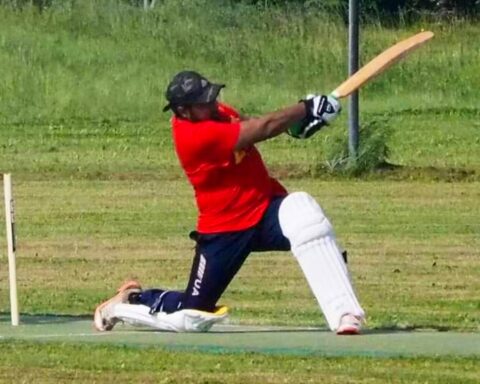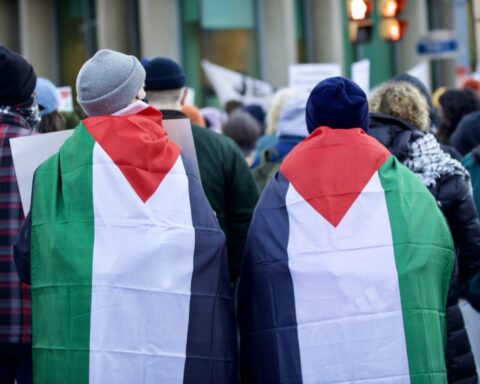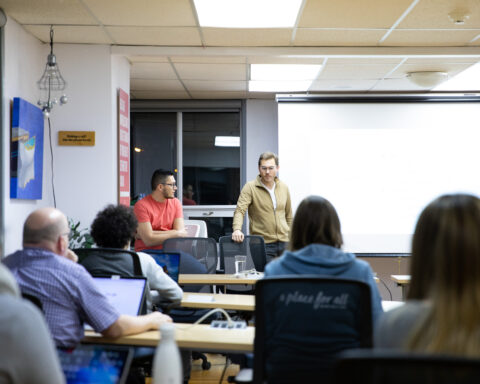Despite the partisan brouhaha and accusations of weakness and betrayal directed at the Liberal government, Prime Minister Justin Trudeau’s decision last week to withdraw jet fighters from the international anti-ISIS coalition was the correct one.
True, the Liberals may not have been particularly bright or assertive in how they sold the idea of the CF-18 pullout, but the facts on the ground support Trudeau.
In fact, his decision was the sanest yet in a conflict that no longer makes sense.
The coalition’s campaign of bombing ISIS targets in Iraq and Syria has produced little. It has failed to significantly cripple ISIS’s military capacity or its ambitious recruitment drive.
The extremist group not only still controls Iraq’s second largest city, Mosul, and much of the north and centre, but it has expanded into Libya and Afghanistan.
Coalition airstrikes had even failed to fully dislodge ISIS fighters from all of Ramadi, capital of Anbar province, until earlier this week.
Then there’s the collateral damage.
Coalition air raids have, as claimed by many Iraqi and Syrian civilians in the past 18 months, led to a number of civilian casualties.
That’s not exactly protecting civilians from ISIS, is it?
Canada does not need to have blood on its hands, whether directly or by association.
Canada does not need to have blood on its hands, whether directly or by association.
Other types of war brewing
While the war for hearts and minds has not been particularly successful, there’s also the war of perceptions which rages in the Middle East and on social media.
And the U.S.-led coalition appears to be losing that one, too.
For more than a year, various Middle Eastern voices have accused the U.S.-led coalition of actually aiding ISIS.
On social media, various videos purport to show airdropped U.S.-made supplies falling into the hands of ISIS fighters. Whether these were seized from the Iraqi army or not is largely a moot point.
Canada does not need the negative publicity that accompanies accusations of aiding ISIS.
It’s also rather confusing. The U.S.-led coalition is comprised of predominantly Sunni states who are opposed to the Alawite (Shia) rule of Syrian President Bashar Al-Assad.
Assad is supported by Iran.
Iran is in a proxy war with Saudi Arabia and the United Arab Emirates (UAE) in Yemen.
Elements within these Sunni states are accused of supplying the Islamist rebels, including Al-Qaeda and ISIS, with weapons and funds – whether directly or not.
And it could get messier.
Saudi Arabia and the UAE pledged to send up to 100,000 troops to remove Assad’s government.
They already moved their air force assets to Incirlik air base in Turkey.
Why does Canada want to get caught in the middle of a proxy sectarian war?
It doesn’t, but Canada cannot stand on the sidelines.
A country with a tradition of humanitarian global assistance, Canada will up its efforts to host refugees and assist others left in the Middle East.
In the meantime, it is boosting its military advisory role in Iraq, increasing the number of trainers and experts who will help the Iraqi army enhance its capabilities and reach from 69 to 207.
Strengthening Iraq’s core
By stating that airstrikes alone do not produce long-term stability, Trudeau is not only drawing on lessons from Canada’s moral experience in Afghanistan, but also correctly reading the situation on the ground.
Iraq has been bombed, re-bombed and over-bombed more than any other country since World War II.
The country has gone from bad to worse, sinking into a medieval state of disrepair. Despite shock and awe and tens of thousands of sorties – using the most advanced smart and dumb technology of warfare – the country has failed to stabilize.
[Iraq] has gone from bad to worse, sinking into a medieval state of disrepair.
There are more than 60 organized, battle-hardened and fully-equipped militias operating beyond the scope of the government in Iraq.
They have wreaked havoc throughout the country, adding to the sectarian tensions already about to burst.
During the effort to liberate Anbar capital, Ramadi, three months ago, the Iraqi government – at least on the surface – appeared to acquiesce to Western pressures not to use these militias in the campaign.
That these militias were heavily used 10 months earlier to liberate predominantly Sunni Tikrit is a testament to the weakening of the country’s centre; Baghdad has had a token fledgling national army since the U.S. disbanded the Iraqi military in 2003.
Many see this as having been a mistake with deadly consequences, which ultimately led to the rise of sectarian militias that now dominate the landscape.
By training Iraqi national forces, Canada will be strengthening the country’s core and signalling that the international community backs a united country led by the government in Baghdad.
Firas Al-Atraqchi is a Canadian journalist of Arab descent who has covered the Middle East since 1992. A former senior editor with Al Jazeera’s English-language website, he currently teaches journalism at the American University of Cairo as an associate professor. He is a member of New Canadian Media’s editorial advisory board.
Journalism & Communication Dept Chair; Managing Co-Editor @ Cairo Review of Global Affairs, American University in Cairo





